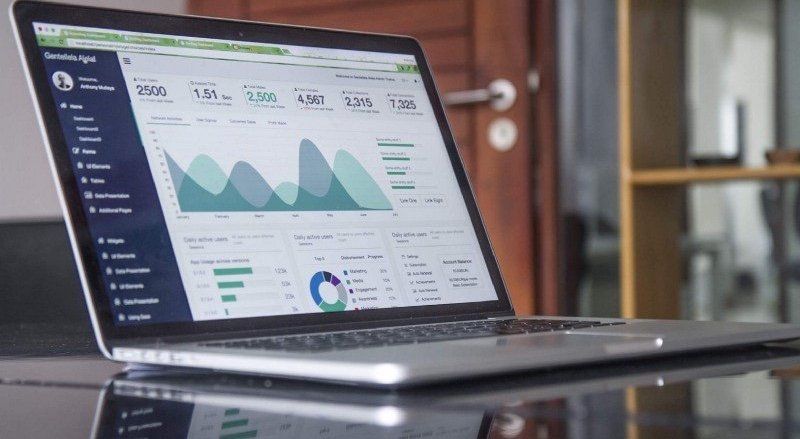As the popularity of blockchain continues to grow, so does the need for investor education. So, just how do you properly educate yourself prior to investing?
We always suggest researching the project’s team background and experience in the space, the industry they are trying to disrupt and barriers to entry, as well as reading the whitepaper carefully. But, just because something looks
good on paper, it doesn’t mean it will live up to the hype.
Ideas are great, but execution wins the day!
With countless new projects popping up every week, it can be hard to separate the wheat from the chaff. Not every project can be or will be successful.
At the end of the day, no one has a crystal ball to predict successful projects. But, there are a few key factors your need to consider prior to investing your hard-earned money. Let’s look at how you can identify value like the professionals:
Data Migration
If the project aims to disrupt an industry with established legacy systems, how will businesses migrate their data?
Different blockchains will have various block sizes, so you need to consider what data will be pertinent to store in the blockchain, how much data will fit into each block, and how businesses will transfer their data. Is storage of all the data required or just a pointer to an off-chain data store?
It may sound boring, but it’s not — remember the Y2K scare? A few savvy people made a lot of money handling the massive amount of data migration. This time won’t be any different.
Use and Analysis of Data
Now that all this great data is on the blockchain, what now? Research how the data will be used and most importantly, the potential benefits it will provide businesses. Simply storing data on a blockchain and calling it a day is not going to drive usage or value for businesses.
Consider the specific
benefits a company or industry will gain by storing their data on a blockchain.
One interesting use case is seeing who
is accessing the data and how.
For example, airports. Let’s pretend every airport in the US adopted a specific blockchain to store travelers’ data. They could then analyze the total number of visitors to each airport, but also what travelers are doing at each airport, time spent at each location, and much more. This level of transparency is completely unique to blockchain technology — it simply wasn’t possible before.
Consortium Buy-In
This is unavoidable, but something you always need to consider prior to investing. Within a given industry, you need to think of all the companies that would also need to adopt the technology and standards.
For instance, a few projects want to disrupt the supply chain industry. But within the supply chain, there are many
companies that would need to fully adopt the technology for the blockchain to have a tangible impact — suppliers, manufacturers, shippers, retailers…the list goes on and on.
Disrupting established industries takes time. It’s just a matter of how long, and how many players need to give their buy-in before the blockchain project’s vision becomes a reality.
Earnable Tokens
Think of miners, or validators, as accountants — and accountants never work for free. They confirm the transactions and thus control the nodes. Therefore, miners are the lifeblood of nearly every blockchain.
But in return for their work, they need to be rewarded. If the project you have your eye on does not have an earnable token, ask yourself why miners would want to invest their time and computing power to keep the network running smoothly. If the only way someone can possess the token is through exchanges and airdrops, ask, who is doing the work?
Without validators, widespread adoption and use of the technology will likely fail — and that’s where the real
value is.
The Speed of Business
This is perhaps the most crucial of all factors. At its core, blockchain is the “Internet of Transactions.” Transactions per second is crucial to long-term use and adoption of blockchain technology.
One size does not fit all. Some blockchains are better for financial transactions than processing transactions.
If a network validates data too slowly, businesses won’t be able to use it, regardless of other benefits it provides. For example, the recent Crypto Kitties craze. Ethereum was a victim of its own success — with so many people playing the game, the network was bogged down. Transaction times and cost drastically increased simply because lots of people were using a network, that by design is single threaded. Think of it as a one-lane highway.
Now think of major international corporations and the number of people who would need to use a blockchain simultaneously. If the network won’t be able to handle high traffic and usage volumes, it is not going to be adopted by major companies who need consistent and instant access to their data.
These are only a few of the factors we consider when conducting our due diligence on potential investments. Educate yourself like the pros and once you’re able to confidently understand and answer these questions prior to investing, you’ll be able to identify high-value projects. You’ll also have a better understanding of the blockchain ecosystem.
The true value of blockchain won’t come from flashy spokespeople, a well-thought-out development roadmap, or a never-ending slew of announcements. It will all come down to execution and adoption.



